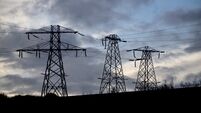Semin Soher Power: Household energy prices are likely to stay hot for some time

It was a little over a year ago when the price of oil fell below zero for the first time in history driven by the sharp fall in demand. Fast forward and things could not be more different in energy markets as the recent acceleration in prices is expected to have wider implications for geopolitics, monetary policy, businesses and consumers alike.
There are a number of factors impacting energy markets right across the globe — but weather disruption is a common theme throughout. In China, floods forced authorities to turn to the global markets and purchase natural gas to replace coal supply lost in the flooding. Closer to home, low wind levels in the UK have adversely affected the energy production by wind farms there, while a cap on prices for customers combined with soaring energy costs has seen a number of suppliers cease trading, which has so far impacted over 2m UK customers.














